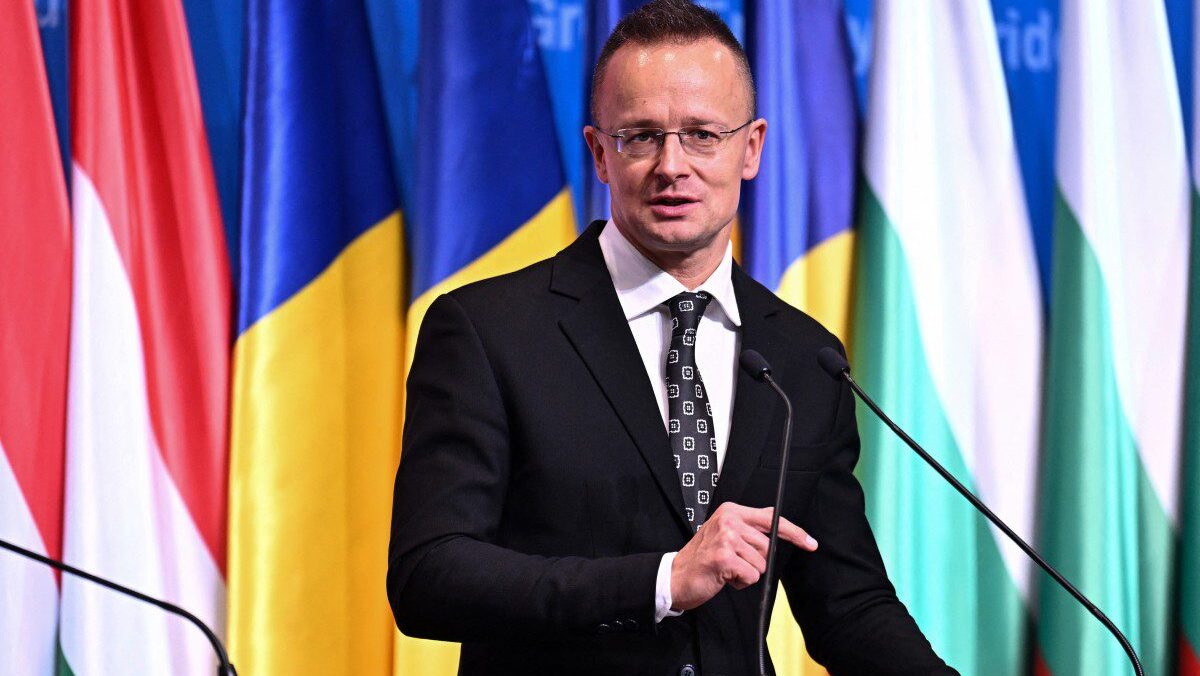
Hungarian Foreign and Trade Minister Peter Szijjarto
Photo: Attila KISBENEDEK / AFP
In a press conference that punctuated a meeting with NATO foreign ministers in Brussels on Tuesday, November 28th, Hungarian Foreign Minister Péter Szijjártó reasserted his country’s long-held position on the Russo-Ukrainian war, urging his counterparts in the military alliance to course-correct on their failed strategy.
“NATO member states should rethink their failed Ukraine strategy, but most of them show no willingness to do so despite the lack of success seen over the past year and a half,” Szijjártó told the press. He noted that several foreign ministers had called for current levels of support to Ukraine to be maintained, while others suggested NATO ought to increase its assistance and expand its involvement in the war, Magyar Hirlap reported.
“I expressed the Hungarian position that we still consider and hope that the decision we made here more than a year ago is still valid, namely that everything must be done to prevent NATO from becoming involved in the conflict,” the Hungarian foreign minister continued, stressing that “everything must be done to avoid a direct confrontation between NATO and Russia.”
“No proposals that went against this have been put forward so far, and the good news is that no one has taken the initiative today either to change or reconsider this decision,” he added.
Szijjártó made sure to remind everyone that NATO’s strategy from the outset of the war was for Ukraine to achieve a victory over Russia on the battlefield, which would then lead to political consequences for the Kremlin.
“I think today everyone can see—though they may not admit it—that this plan has failed,” he told journalists.“The goals and hopes of the Ukrainian counteroffensive have been dashed because there has been no major change on the battlefield and no breakthrough since its beginning. This has been recognized by many people here. Quietly, cautiously, but still recognized,” he acknowledged
Despite this acknowledgment, Szijjártó lamented that the attitude most NATO members have toward the war remains the same as it was a year and a half ago. He highlighted that not once during the meeting was the word “peace” uttered, and argued that NATO “should finally admit that there can be no solution on the battlefield because there are only casualties and destruction there.”
Hungary is not the only NATO member who would like to see the military alliance reorient itself toward Ukraine. According to Szijjártó, his Turkish counterpart also suggested that, in light of the latest developments and the fact that NATO’s support has not had a significant effect on the battlefield, perhaps a shift in strategy—one that favors some kind of settlement through diplomacy—is needed.
NATO chief Jens Stoltenberg, meanwhile, urged members to “stay the course” in arming Ukraine, insisting that the fight is also about “our security interests.”
Stoltenberg, during a press conference on the morning of Wednesday, November 29th, sought to convey to the public that NATO’s efforts in Ukraine have not been in vain. He underscored Ukraine’s victories in Kyiv, Kharkiv, and Kherson, and added that Ukrainian armed forces “continue to inflict heavy losses on Russia.”
“Ukraine has recaptured 50 percent of the territory that Russia originally seized,” Stoltenberg continued. “In the Black Sea, the Ukrainians have pushed back the Russian fleet, and established routes for grain exports—bolstering global food security.”
Russia, he insisted, is now weaker “politically, militarily, and economically” due to NATO’s military backing of Ukraine.
